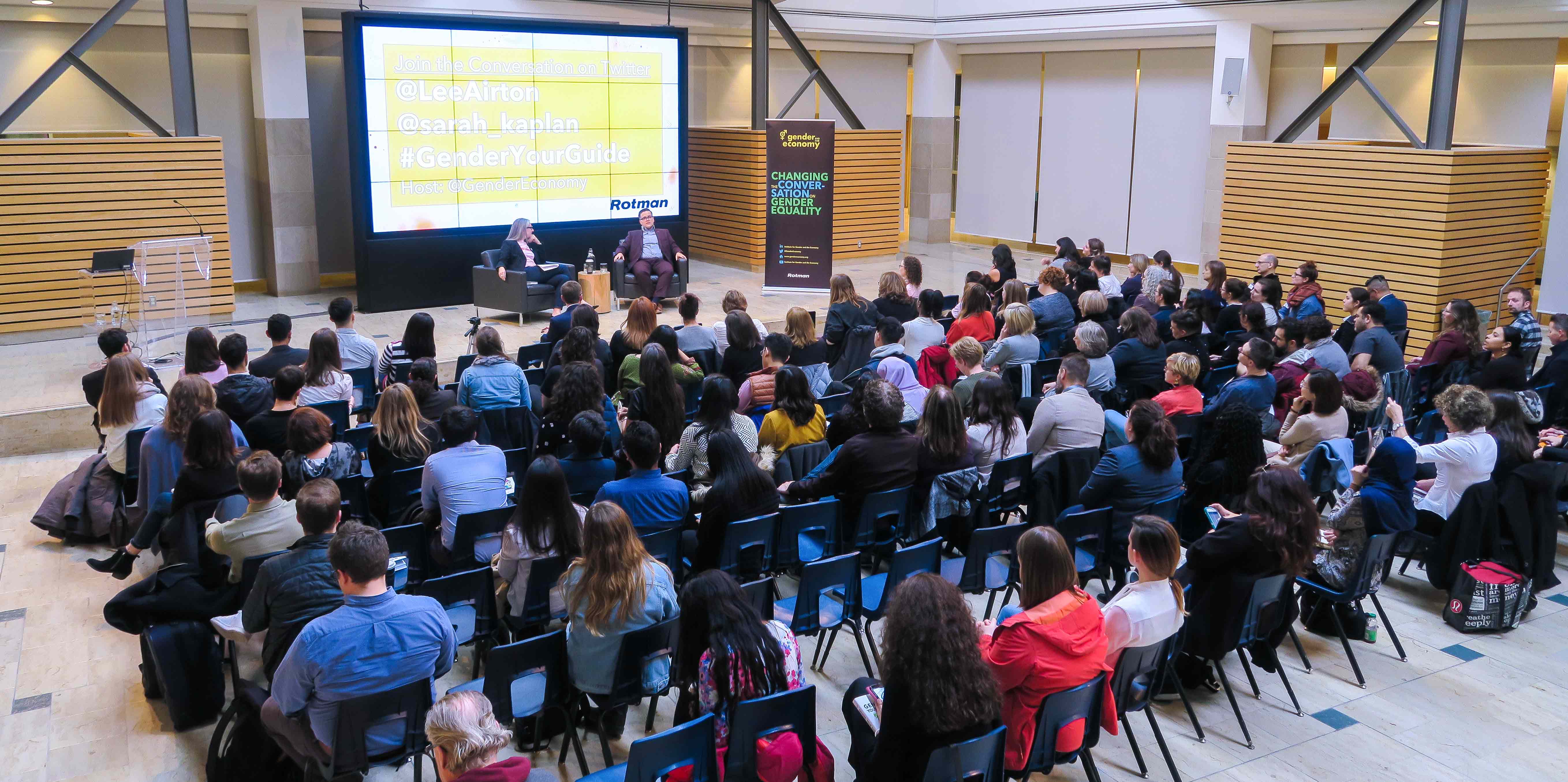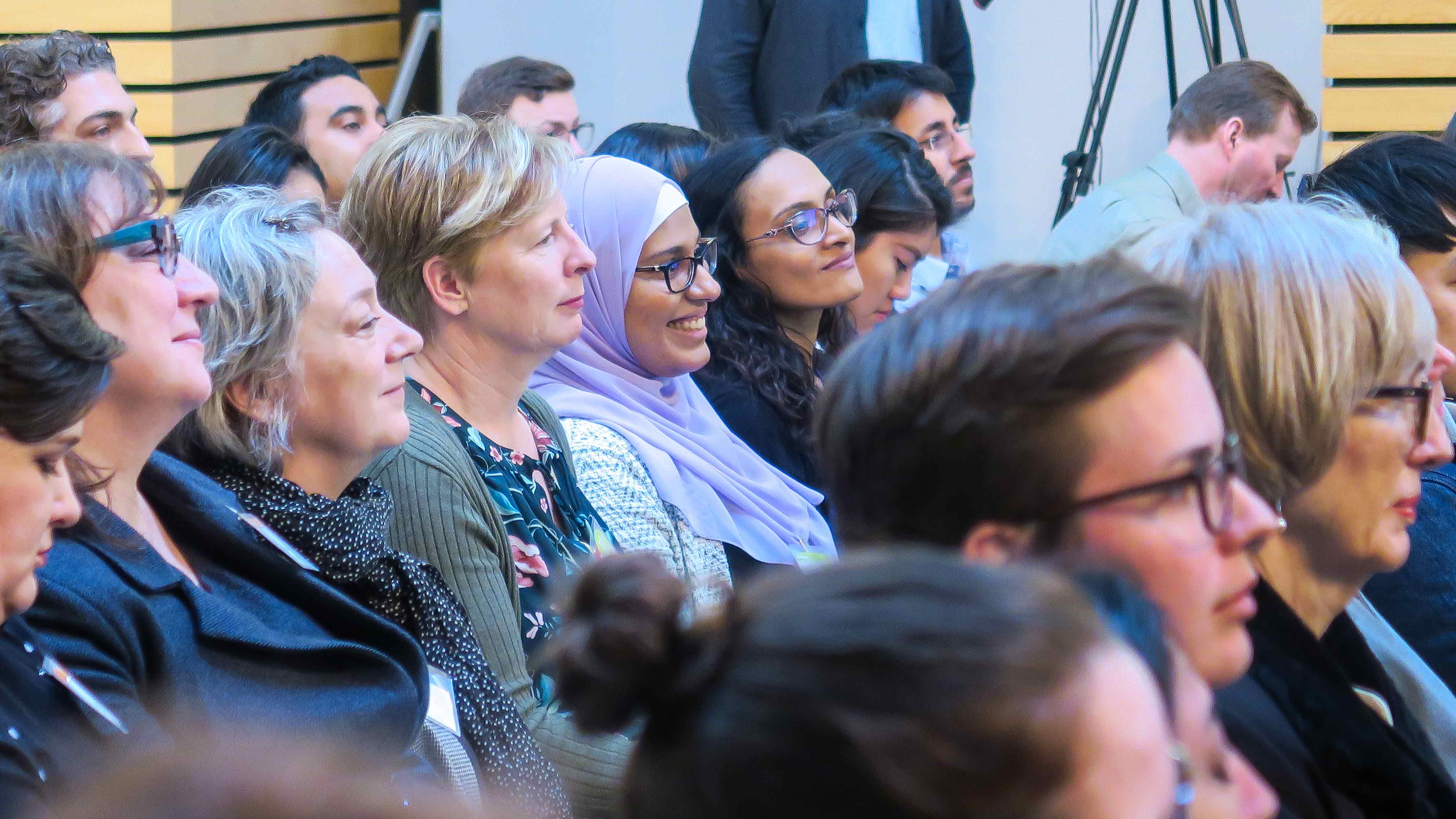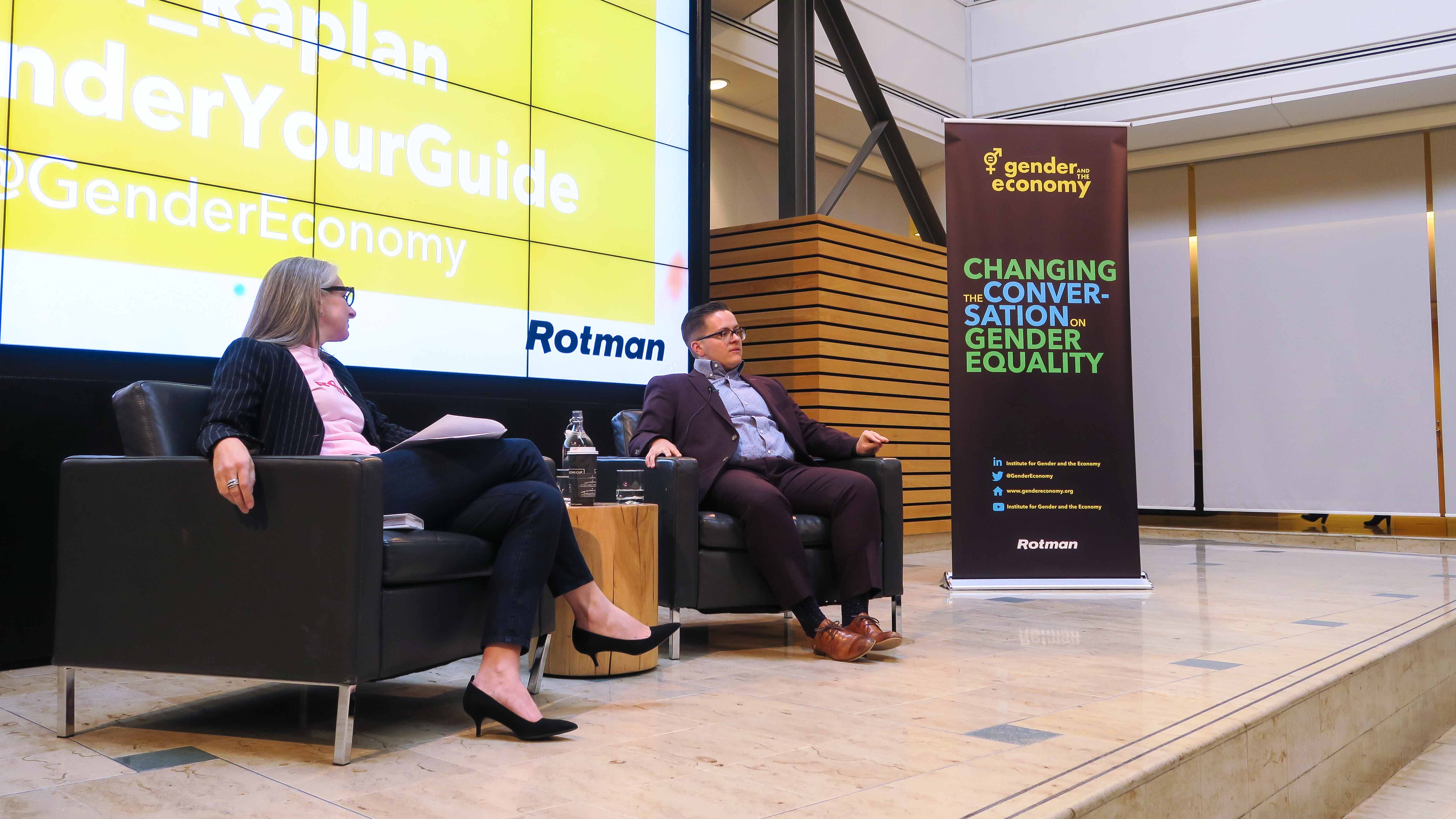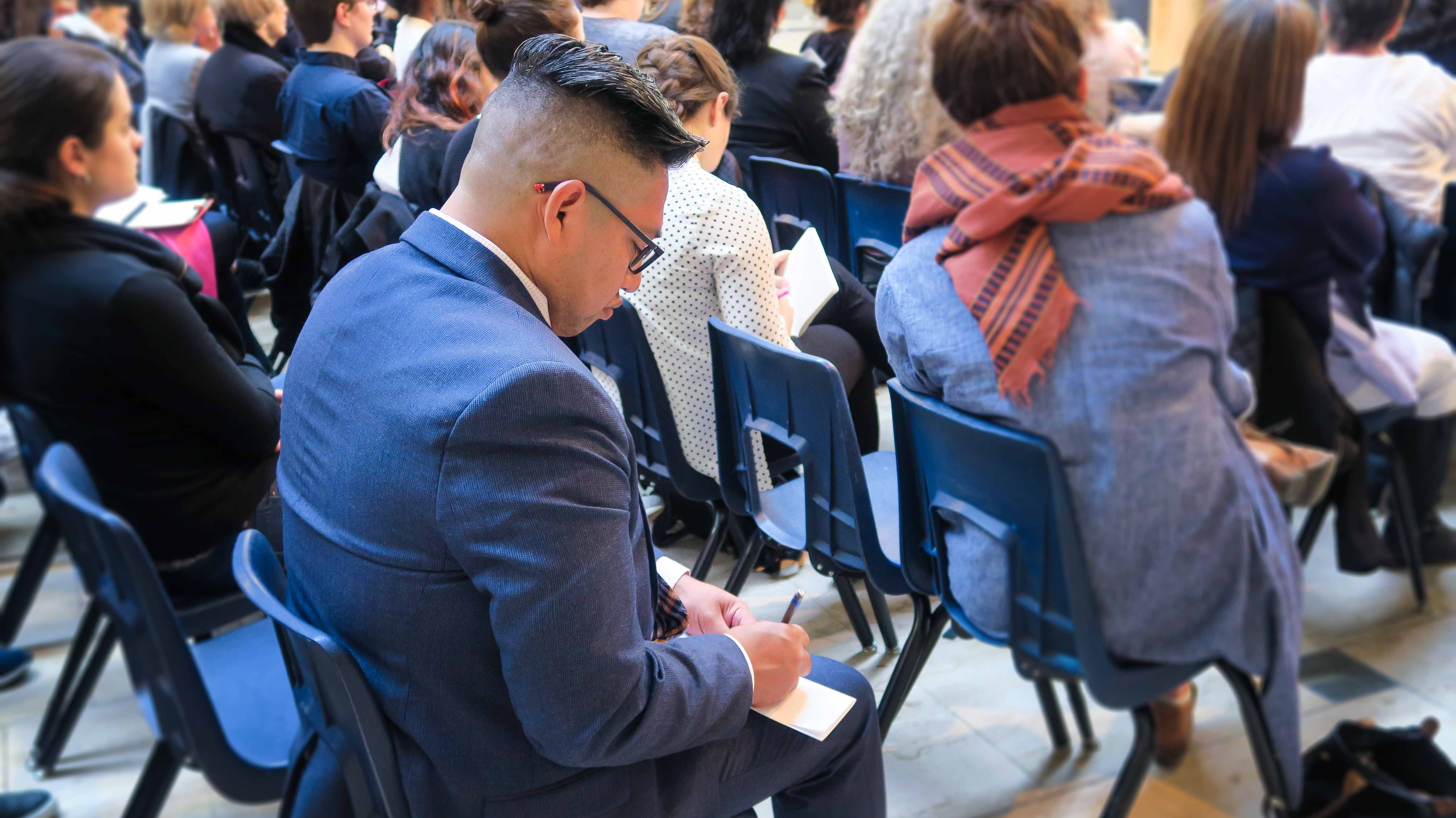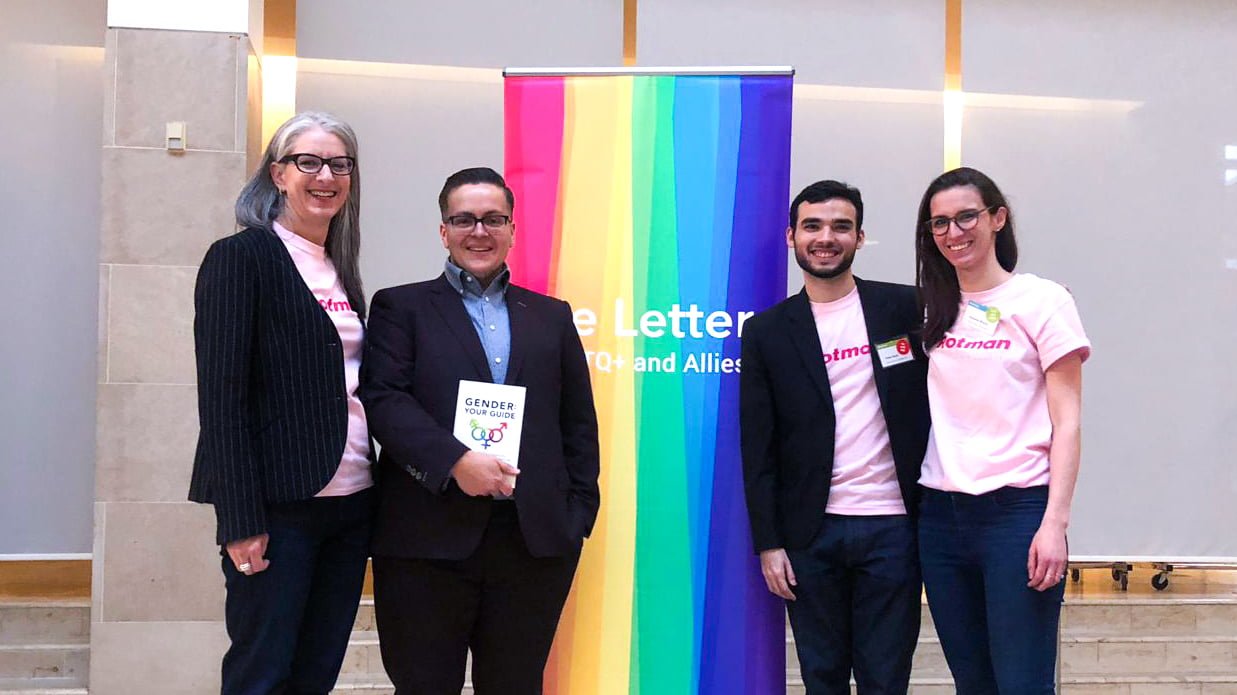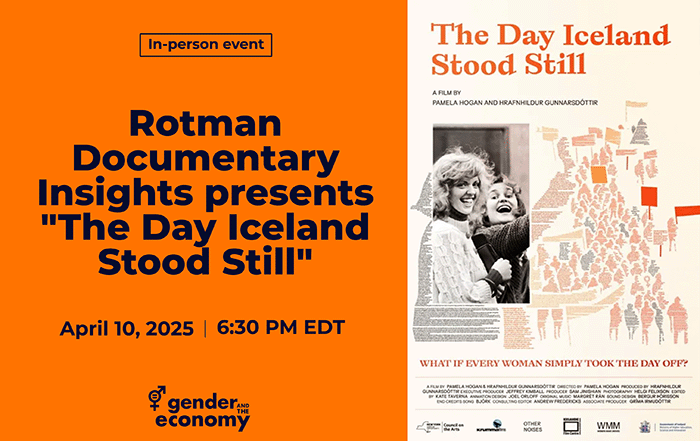“This book is very much a manual on how to stop being a part of the ‘gender police,’” began Lee Airton, assistant professor at Queens University, at our recent event co-hosted by The Letters commemorating the International Day of Pink.
Airton’s book, Gender: Your Guide–A Gender-Friendly Primer on What to Know, What to Say, and What to Do in the New Gender Culture, is a manual for those looking to navigate the changing landscape of gender norms and support gender inclusion. Airton hopes that by helping people understand how gender norms impact them—both positively and negatively—they can change their habits through empathy and understanding. In fact, they (Airton uses they/them pronouns) explained, gender is a process of socialization into rigid categories that limit everyone. As they stated, “Nobody is outside of this problem. We all experience it, and we all participate in it.” Furthermore, Airton stresses the importance of recognizing that gender norms are not universal; gender norms vary even on at a local level. They change school-by-school, neighbourhood-by-neighbourhood, and city-by-city. To promote gender inclusion, it is essential that we respect and try to understand the fluidity of gender.
Nobody is outside of this problem. We all experience it, and we all participate in it.
During the discussion, Airton outlined a few key takeaways:
Anticipate mistakes
We all make mistakes on gender pronouns because this requires a significant cognitive shift. However, we have to be willing to make that shift and be open to correction.
Set an example
If you’re in a position of power (e.g. a professor or manager), set an example by openly declaring your preferred pronoun, making it OK and safe for others to do the same.
Be self-aware
We know more about gender than we think we do. We need to realize how we participate in the process of constructing and maintaining gender norms.
Airton ended the discussion by reiterating the purpose of their book: “[It’s] all about calling you in to get on board by saying this is happening to everyone. We’re all part of ‘gender.’”



